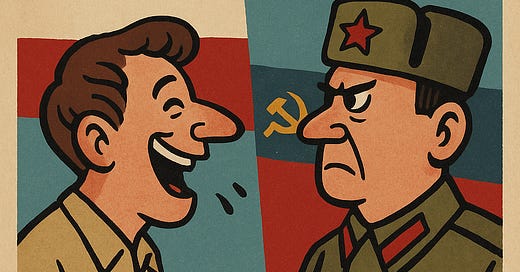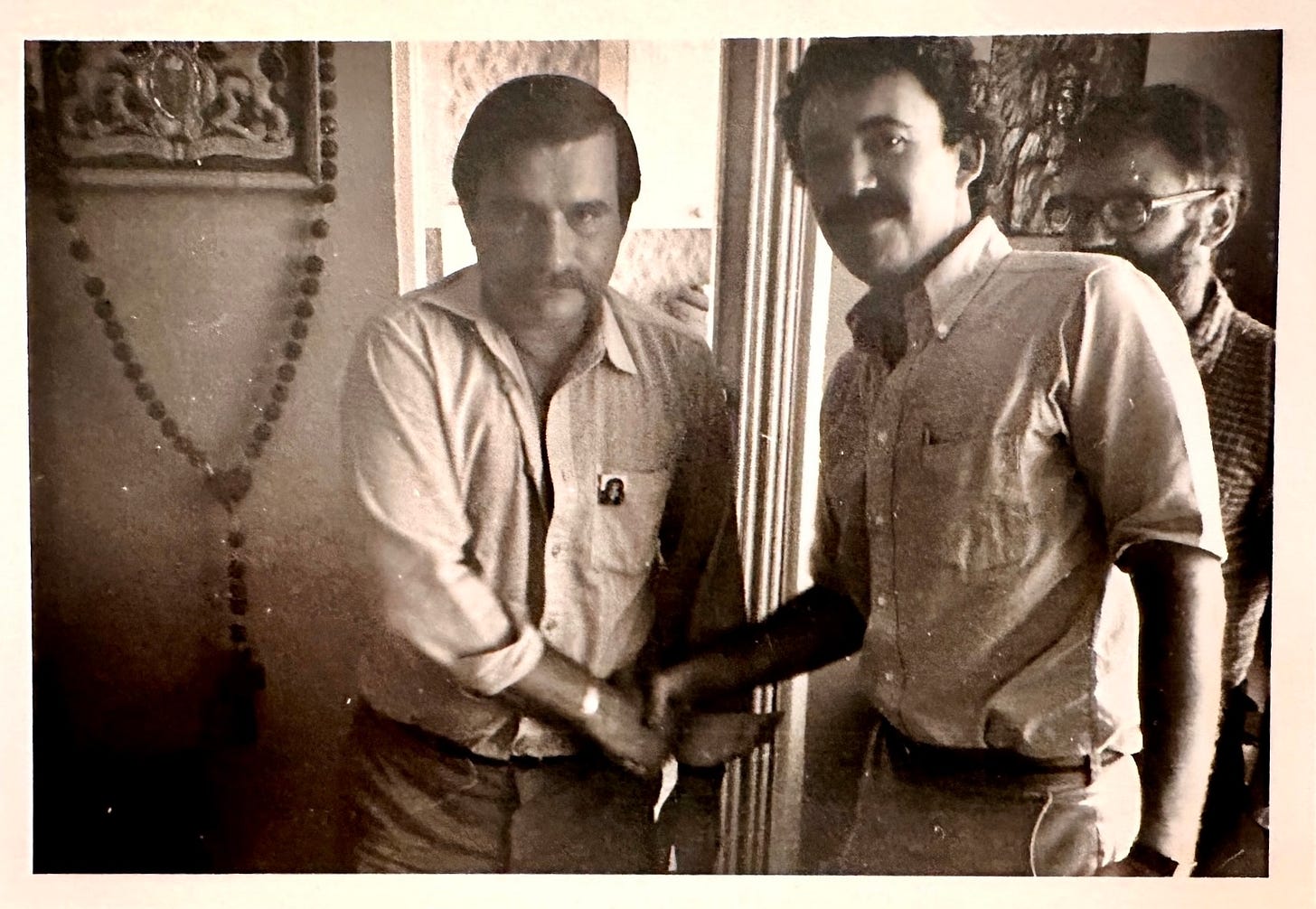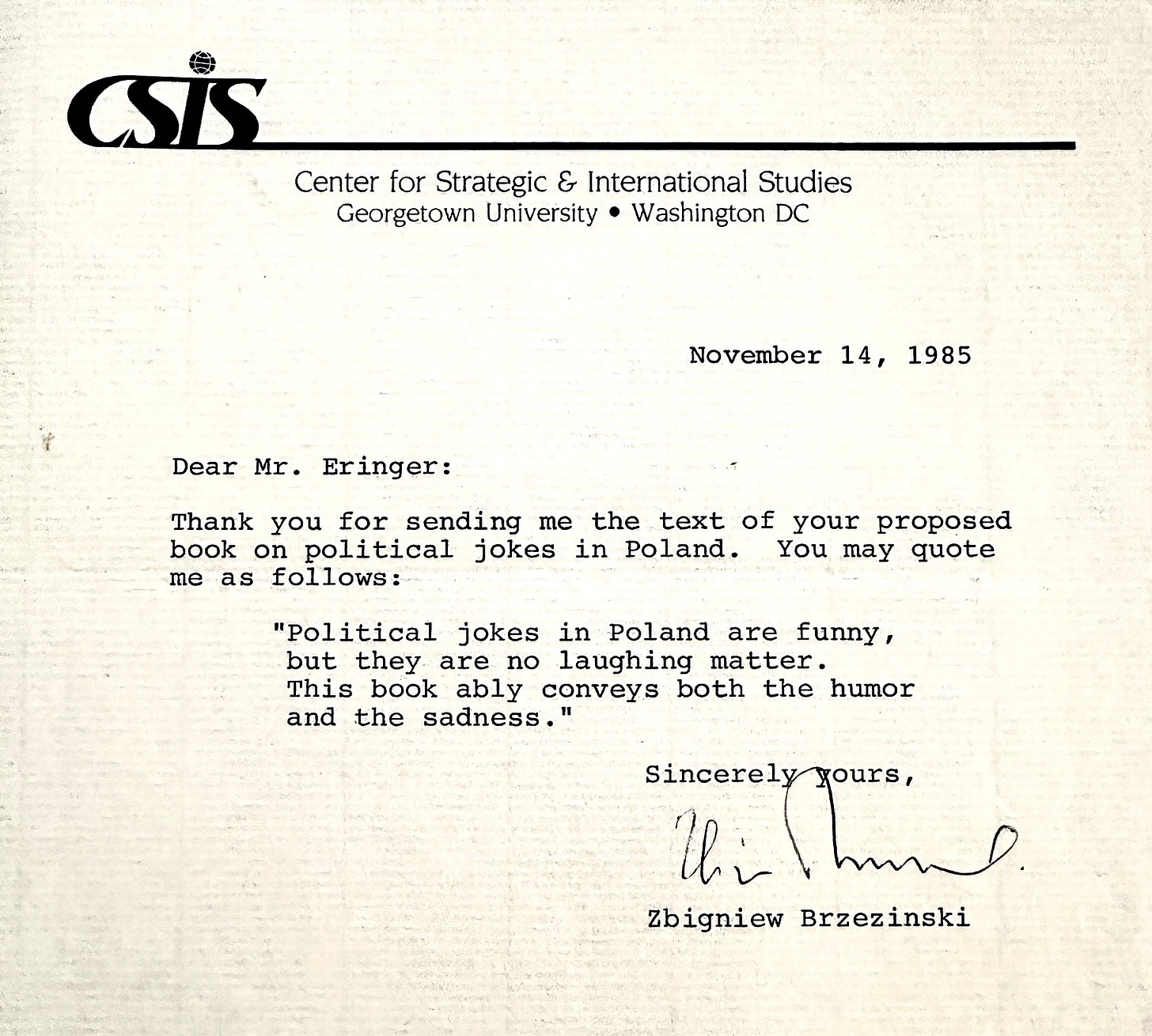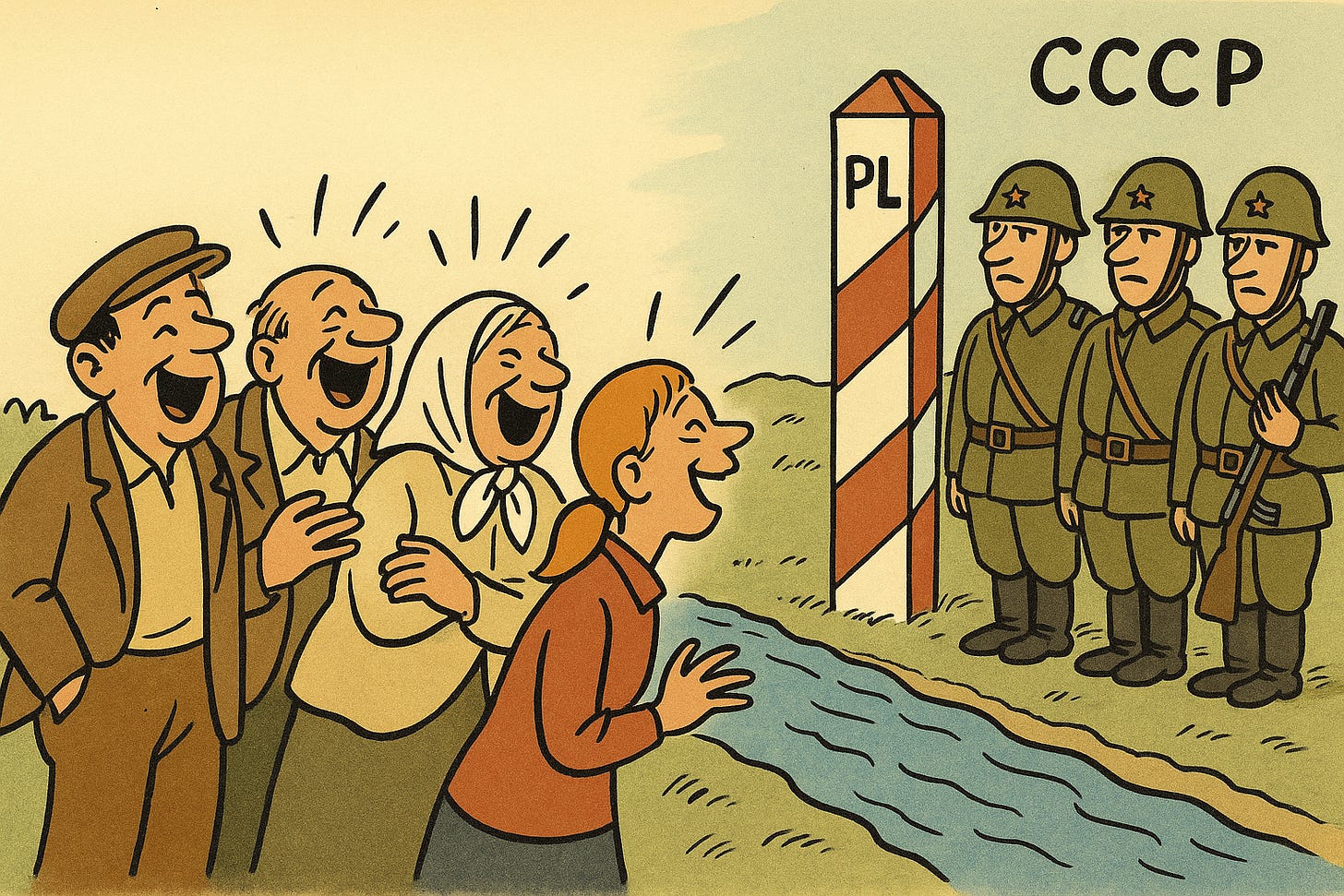According to The New York Times, President Ronald Reagan had a unique hobby: collecting Soviet Jokes.
After reporting from Poland and authoring the first book U.S.-published in the U.S. on Lech Wałęsa and the Solidarity Movement (Strike for Freedom!, Dodd, Mead, 1982), I began collecting anti-Soviet jokes told in Poland.
These jokes were a form of grassroots resistance—sharp, subversive, and often hilarious.
I’d like to think they contributed to bringing down The Wall.
With the encouragement of none other than Zbigniew Brzezinski (National Security Adviser to President Jimmy Carter), who even provided a blurb, I hoped to publish a book of these jokes.
Former U.S. Ambassador to the Soviet Union Jack Matlock also provided support, writing, “Such jokes offer unique insights into the shifting moods of society.”
Alas, there were no takers, and the manuscript has sat quietly for 40 years.
So why not dust it off and share a few laughs now? Every Monday, I’ll post a few, start the week off with a chuckle.
Note: These jokes are not aimed at the Russian people, but at the Soviet system—an authoritarian legacy that continues today under Mad Vlad Putin.
My original introduction:
The political joke in Poland transcends the boundaries of mere humor. In Poland, the joke is an institution: social statement, art form and public demonstration rolled into one.
Its power dates back to World War II, when Poland’s underground resistance—the Home Army—created “sabotage groups” that crafted and spread jokes as weapons of psychological warfare against the German occupiers.
Example:
A man applies for a pass to travel within Poland.
German soldier: “Surname?”
Man: “Schmidt.”
Soldier: “First name?”
Man: “Henryk.”
Soldier: “Place of birth?”
Man: “Berlin.”
Soldier: “Are you German?”
Man: “No, I’m Polish.”
Soldier: “Where was your father born?”
Man: “Berlin.”
Soldier: “And your mother?”
Man: “Berlin.”
Soldier: “Then you are German.”
Man: “Look, if a hen lays an egg in a pigsty, does that make it a pig?”
The communist authorities understood this power well. In the 1960s, Poland’s secret police even formed a “joke unit” with two missions:
Propaganda: Spread jokes to undermine political opponents.
Surveillance: Track who was telling what jokes, and to whom.
This collection comes from a later era—jokes told by Poles opposing the communist regime and especially the Soviet Union.
Let’s start with this gem:
A Pole and a Russian are walking in the woods when they stumble upon a gold nugget.
Russian: “Let’s share it like brothers.”
Pole: “Oh no, 50-50.”








